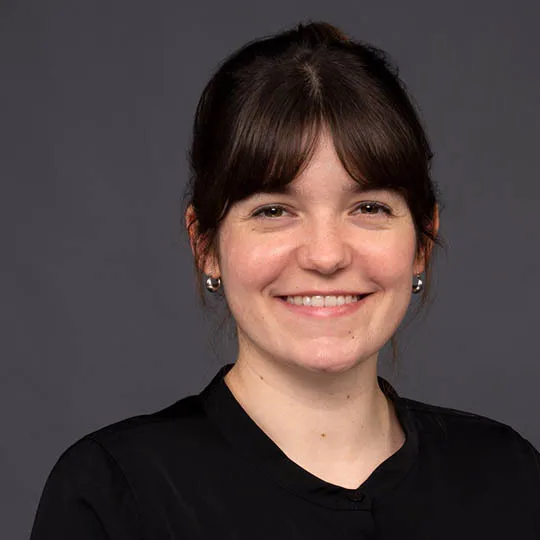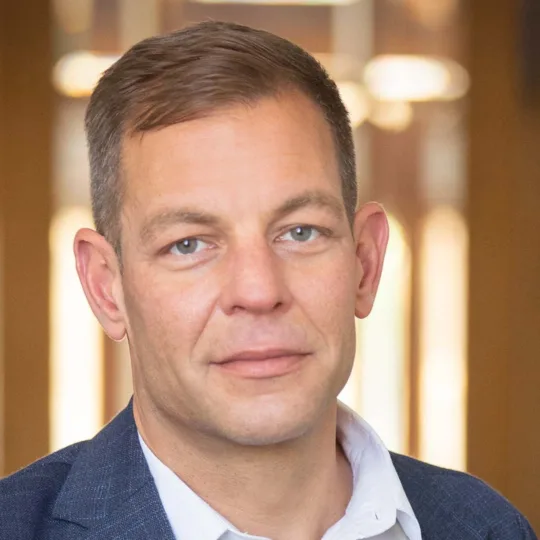Ted Turlings: the biologist who decoded the olfactory distress call of plants
Biologist Ted Turlings receives this year's Marcel Benoist Swiss Science Prize. His research has shaped environmental science worldwide and shed light on the complex phenomena in animal-plant communication.
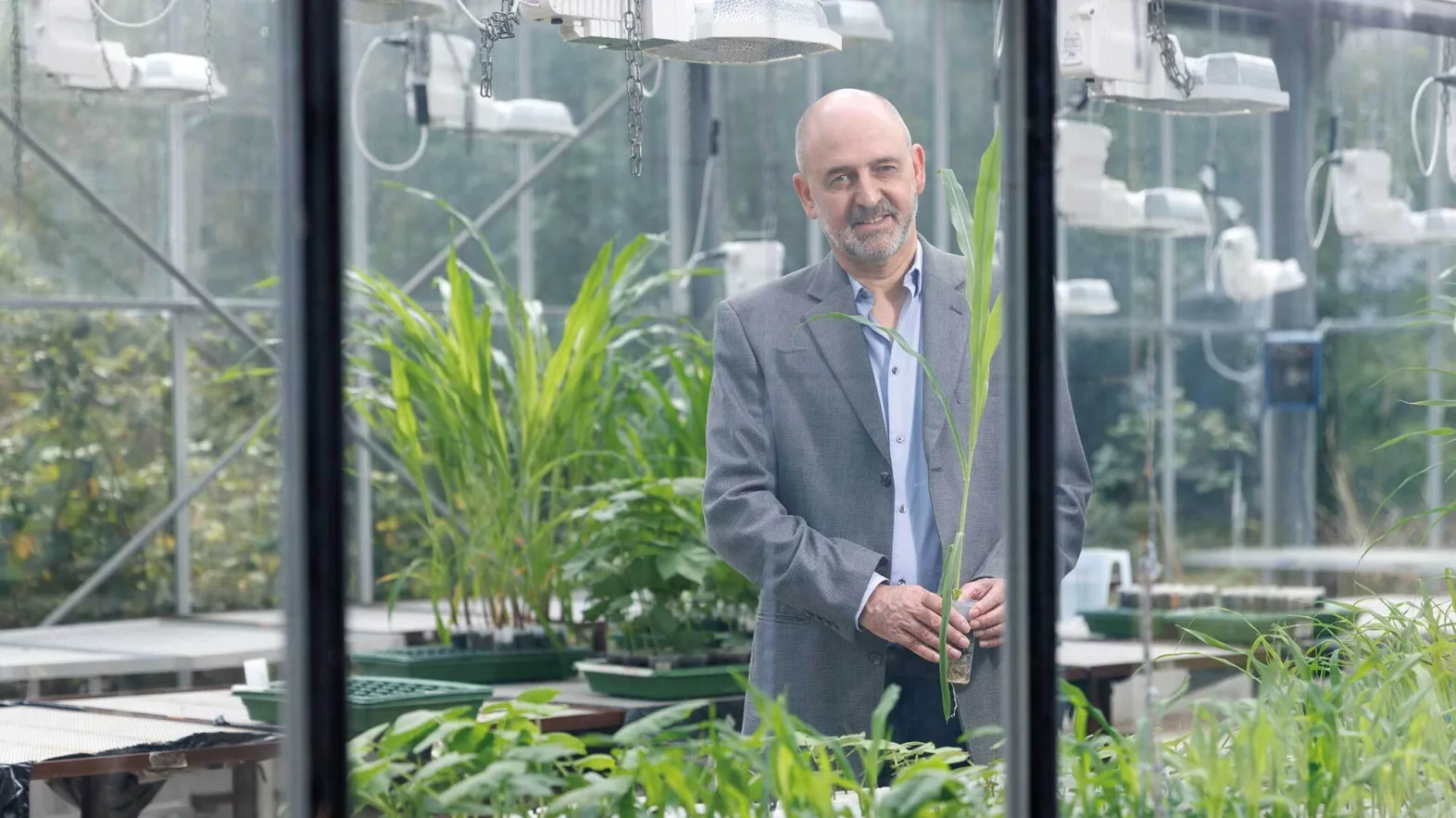
While conducting research in the US in 1990, Ted Turlings discovered that plants defend themselves against pests by producing olfactory compounds that attract the predators of these pests: In one experiment, maize plants responded to caterpillars attacking their leaves and roots by emitting olfactory compounds that attracted wasps or threadworms, which then injected their larvae into the caterpillars. This ultimately led to the demise of the caterpillars. These findings paved the way for new methods of sustainable agriculture that exploit these natural interactions and greatly reduce the use of pesticides.
Distress call from plants
The research team initially thought that the wasps had been drawn to the smell of the caterpillar or its excretions. The breakthrough finally came when the researchers realised that wasps were not interested in the plant when caterpillars were not present. In fact, the wasps even pounced on completely undamaged leaves that had been treated with the caterpillar's saliva: 'This was absolutely fascinating,' Ted Turlings recalls, 'because it indicated that the plant recognises the living organism that is gnawing at it and acts accordingly by emitting specific olfactory compounds that are, as it were, a distress call to the parasitic wasp.’
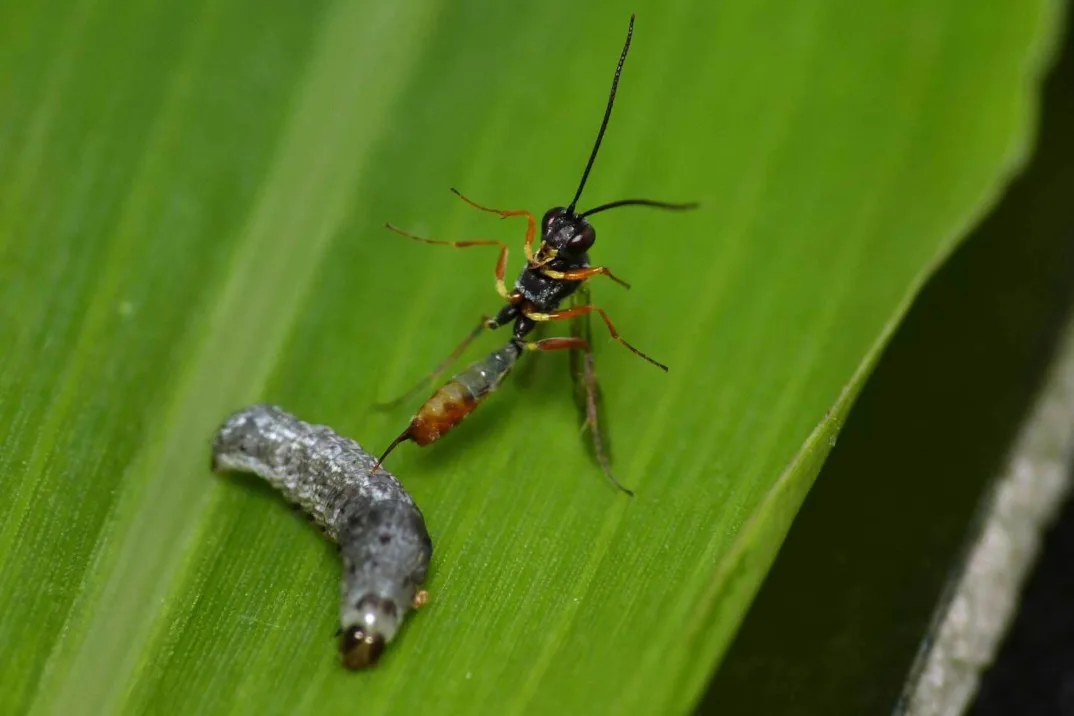
He thus managed for the first time to determine the exact chemical makeup of these emitted molecules. His findings were published in the journal Science in 1990.
Over the decades, research successes followed in succession. Turlings' group managed to identify a molecule he later named volicitin in the caterpillars' saliva. He then discovered the exact maize gene activated by the caterpillars' saliva that is responsible for producing the olfactory compounds. The team was also able to prove that healthy plants standing next to an infested plant also perceive these olfactory warning signals.
Since Ted Turlings' discovery, several research teams have shown that other plant species also issue similar distress calls to predatory insects in this manner. Since this fundamental revelation, the research field of chemical ecology has grown steadily.
Use in agriculture
The progress made by Turlings in basic research has gradually given rise to specific applications. Since 2018, the researcher has been part of the Agriscents project, developing devices with biochemical sensors that detect olfactory compounds emitted by infested plants. This research is supported by a grant from the European Research Council. The aim is to develop a system that warns farmers of infestations in good time. In this way, 80-90% of infested plants can be detected and identified. In concrete terms, this means that in the future, pesticides will only have to be sprayed where and when pests are detected, thus greatly reducing their use.
Marcel Benoist Swiss Science Prize
The Marcel Benoist Swiss Science Prize is given to individuals who have made a significant contribution to scientific knowledge and whose research was mainly conducted in Switzerland. It has been awarded every year since 1920 and carries an endowment of CHF 250,000.
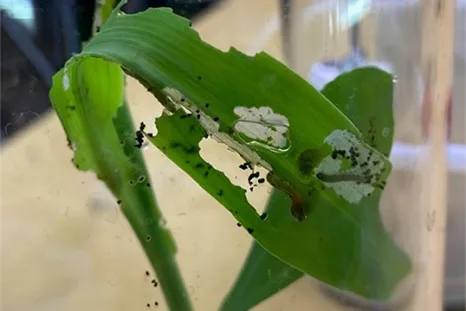
Contribution to food security
Ted Turlings considers this work in light of global challenges: 'Agriculture is the source of a great many problems. Take, for example, the enormous amounts of pesticides that are sprayed,' he explains. 'This has a significant negative impact on the environment, but often also on the people who work with pesticides without any form of protection, especially in Africa and Asia.' According to Turlings, innovative countries like Switzerland have a moral duty to use their research to improve food security and minimise the environmental impact. Nature offers us reliable and cost-effective solutions for this.
Turlings does not regret his decision to continue his research in Switzerland: 'The University of Neuchâtel is small and not very well known, but we have great researchers and I can pursue unique projects here'. He owes this, among other things, to the Swiss National Science Foundation, which has been supporting his work continuously for years.
Technologies inspired by nature
For Ted Turlings, his work is more than just scientific research: ‘The combination of traditional agricultural practices with innovative but simple technologies inspired by nature will move farming forward. New, sustainable strategies to solve the problem of food security will also have a positive economic impact. This could encourage young farmers in developing countries, women and men alike, to explore new avenues locally instead of joining migration flows.’
Now, with official retirement age approaching, Ted Turlings now has the opportunity to take the discovery made four decades ago to an entirely new level. And, as always, his work is driven by an intense curiosity for nature, which is a common thread running through all his work.
Contact
Author
